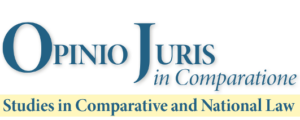Perspectives on the regulation of search engine algorithms and social networks: The necessity of protecting the freedom of information
Authors: Matteo Monti
ABSTRACT
The paper studies how the paradigm of the freedom of information has changed by the advent of the Internet and whether new forms of regulation of the Internet media are necessary.
The paper focuses on two different issues: on one side, the importance of the algorithms and of search engines in the field of the press is analysed; on the other side, the central role played by social networks in the spread of news is examined. These phenomena are affecting the world of journalism by impacting on one of the most important element of the constitutional-democratic order: the freedom of information and the press as “watchdog of democracy”. The algorithms developed by search engines decide what type of news we “receive” when we use the search string for a query, and the social networks are going to become the global newsstand of news in the near future. The research question of this paper is whether and how these two phenomena should be regulated according to the Italian paradigm of the freedom of information.
In the first part of the paper, in section 2, the innovations and transformations of the world of information that are related to the advent of the Internet are highlighted. Next, in section 3, the constitutional principles of the media sector are briefly analysed, in order to develop a systemic approach to the framing of the new media of the Internet.
In the second part, in section 4, the characteristics of search engines and social networks are explored, and the requirement that they are classified as ‘means of distribution of news’ (i.e. as media), with the necessary regulatory consequences, is stressed. In the development of this analysis, comparisons with American doctrine and case law cannot be avoided, because of the remarkable sensitivity in the US to the reality of the Internet and its problems.
In this paper a fairly simple solution is proposed concerning the spreading of news by the new media: 1) search engines should show and clarify the algorithms they use to select the news they propose to users; in this way, readers can choose what type of editorial criteria (meaning algorithms) they use, by choosing what type of search engines they use; and 2) social networks should guarantee that fake news on their platforms will be rectified/corrected.
Keywords: Freedom of information – Freedom of expression – Right to be informed – Algorithms – Search engines – Social networks – Facebook – Fake news – Regulation – New media

